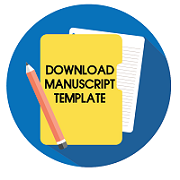Development of Chemistry in Context E-book on Chemistry Subject Grade XI of Senior High School for Facing Literacy and Numerical Competency Assessment
DOI:
https://doi.org/10.21831/jpms.v12i1.65977Kata Kunci:
Minimum Competency Assessment, chemistry in context, e-book, developmentAbstrak
This research aimed to develop an e-book titled "Chemistry in Context" for Grade XI Senior High School students. The study assessed the e-book's quality across nine aspects: conceptual accuracy in chemistry and science, relevance of chemistry in discourse, content material, construction of questions, language and cultural appropriateness, e-book design, usability instructions, literacy components, and numerical aspects. The development process followed the 4D Model, encompassing Define, Design, Develop, and Disseminate stages.The outcome of this research is a comprehensive e-book comprising 30 discourse units and Minimum Competency Assessment questions designed to enhance literacy and numerical skills among Grade XI students. Evaluation by reviewers yielded an average score of 182 out of a maximum of 205 points, translating to an impressive 88.78% rating, indicating the e-book's high suitability for educational use.
Referensi
Alberta. (2017). Literacy and Numeracy Progressions. Retrieved May 20, 2021, from https://education.alberta.ca/literacy-and-numeracy/
Aunurrahman. (2020). Taxonomy of Educational Problems in Support of Readiness for The Implementation of Minimum Competency Assessment and Character Survey in Elementary Schools. Journal of Education, Teaching, and Learning, 5(2), 296-302.
Dishadewi, P., Wiyarsi, A., Prodjosantoso, A. K., & Nugraheni, A. R. (2020). Chemistry-based socio-scientific issues (SSis) as a learning context: an exploration study of biofuels. Journal of Physics: Conference Series, 1-12.
Driessen, G. (2021). Islamic Primary Schools in The Netherlands: The Founding, The Debate, and The Outcomes. Nazhruna: Jurnal Pendidikan Islam, 4(1), 18-31. doi:https://doi.org/10.31538/nzh.v4i1.1076
Hasanah, M., & Hakim, T. (2021). Analisis Kebijakan Pemerintah pada Asesmen Kompetensi Minimum (AKM) sebagai Bentuk Perubahan Ujian Nasional (UN). Irsyaduna: Jurnal Studi Kemahasiswaan, 252-260.
Hendri, S., & Anwar, S. (2019). Development off Integrated-Science Material Using Four Steps Teaching Material Development Method. Journal of Educational Science and Technology, 5(2), 130-139.
Junedi, B., Mahuda, I., & Kusuma, J. W. (2020). Optimalisasi Keterampilan Pembelajaran Abad 21 dalam Proses Pembelajaran pada Guru MTs Massaratul Mut'allimin Banten. Transformasi: Jurnal Pengabdian Masyarakat, 16(1), 63-72.
Kesim, M., & Yildirim, H. (2017). A Literature Review and Content Analysis on Interactive E-Books. Proceedings of EDULEARN17 Conference, (pp. 9824-9829). Barcelona.
Nehru, N. (2019). "Asesmen Komptenesi Sebagai Bentuk Perubahan Ujian Nasional Pendidikan Indonesia: Analisis Dampak Dan Problem Solving Menurut Kebijakan Merdeka Belajar. Journal of Chemical Information and Modeling.
Novita, N. (2021). Asesmen Nasional (AN): Pengetahuan dan Persepsi Calon Guru. Jurnal Ilmu Sosial dan Pendidikan, 172-179.
Nugrahanto, S., & Zuchdi, D. (2019). Indonesia PISA Result and Impact on The Reading Learning Program in Indonesia. Atlantis Press.
Pusmenjar. (2020). Desain Pengembangan Soal Asesmen Kompetensi Minimum . Jakarta: Badan Penelitian dan Pengembangan dan Perbukuan Kementerian Pendidikan dan Kebudayaan.
Salmawati, Anwar, S., & Priscylio, G. (2019). The Use of Chemistry E-book Developed by 4S TMD: Upper High School Teachers and Students' Views. Proceedings of The 10th International Conference on E-Education, E-Business, E-Management and E-Learning, (pp. 28-31). Tokyo. doi:https://doi.org/10.1145/3306500.3306565
Simbolon, K. (2020). Ujian Nasional Sebagai Penentu Kelulusan Merugikan Peserta Didik. 1-14.
Solechan. (2021). Implementasi Sistem Informasi Manajemen Di Smp Islam Terpadu Al Ummah Jombang. Chalim Journal of Teaching and Learning, 8-19.
Wiyarsi, A., Prodjosantoso, A. K., & Nugraheni, A. R. (2020). Students' chemical literacy level: A case on electrochemistry topic. Yogyakarta: IOP Publishing.
Unduhan
Diterbitkan
Cara Mengutip
Terbitan
Bagian
Lisensi
Jurnal Pendidikan Matematika dan Sains allows readers to read, download, copy, distribute, print, search, or link to its articles' full texts and allows readers to use them for any other lawful purpose. The journal allows the author(s) to hold the copyright without restrictions. Finally, the journal allows the author(s) to retain publishing rights without restrictions
- Authors are allowed to archive their submitted article in an open access repository
- Authors are allowed to archive the final published article in an open access repository with an acknowledgment of its initial publication in this journal

This work is licensed under a Creative Commons Attribution-ShareAlike 4.0 Generic License.





